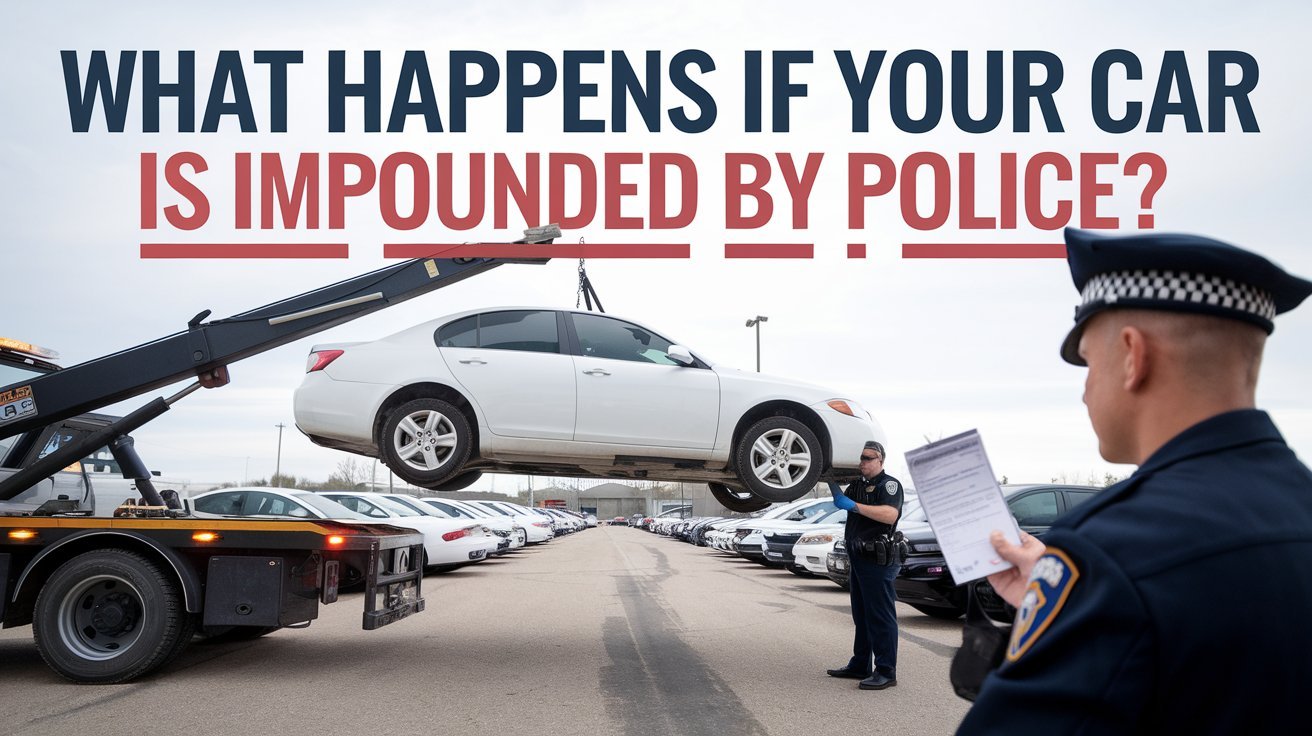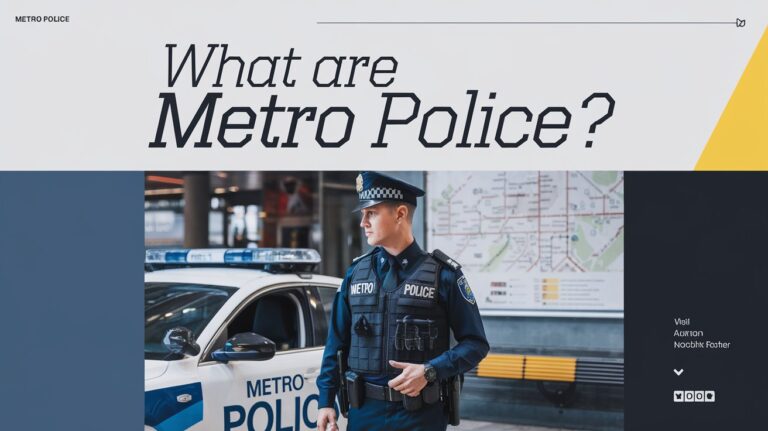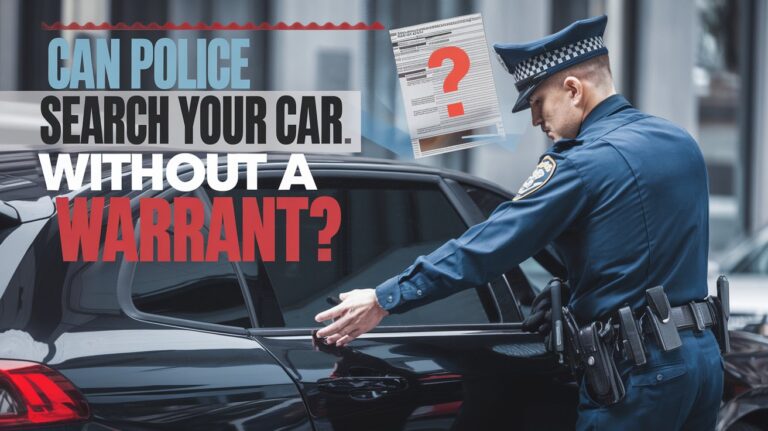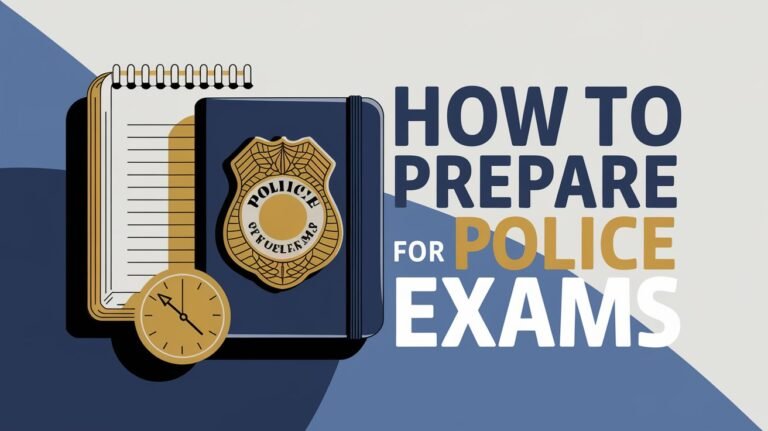What Happens If Your Car Is Impounded by Police

Imagine coming back to find your car gone. It’s been impounded by the police. This can make you feel lost, upset, and unsure of what to do next. But what happens when the police take your car, and how do you get it back?
Key Takeaways
- Police may impound vehicles for various reasons, including lack of insurance, severe accident damage, or involvement in criminal activities.
- Owners must act quickly to retrieve their impounded vehicle, as storage and towing fees accumulate rapidly.
- The process of retrieving an impounded car involves proving ownership, paying fees, and potentially attending hearings.
- Failure to recover the vehicle within specified deadlines may result in the car being sold or destroyed.
- Navigating the impoundment process can be complex, often requiring the assistance of a car accident attorney.
Common Reasons for Police Vehicle Impoundment
Police can impound vehicles for many reasons. This includes driving without a license or insurance, DUI, and criminal activities. These actions help keep the public safe and deal with traffic law violations.
Driving Without Valid Insurance or License
States can take away your car if you drive without insurance or a license. This rule is to make sure everyone follows the law and drives safely. You might also get fines, have your license taken away, or face criminal charges.
DUI and Traffic Violations
Police can take your car if you’re caught driving drunk. This is to stop more accidents and keep everyone safe. They also take cars involved in serious traffic offenses like reckless driving or speeding.
Vehicle Used in Criminal Activity
If a car is linked to a crime, police might take it as evidence. This includes crimes like drug trafficking or gun crimes. Taking the car helps with the investigation and possible court cases.
Getting your car impounded can have big consequences. You might face financial problems or lose your car for a while. Knowing why police impound cars helps drivers stay safe and avoid these issues.
Initial Actions After Police Impound Your Vehicle
When your car is impounded by the police, the first thing to do is get the impound lot information. If the officer doesn’t give you this, call your local city or town hall. They can tell you about recent impounds. It’s important to act fast to avoid extra fees and prevent your car from being considered abandoned.
After getting the impound lot details, contact the facility right away. They can tell you about the process to get your car back, what documents you need, and how much it will cost. The fee to release your car can be between $240 and $300, depending on why it was towed. The police might also charge you up to $435 in administrative fees.
- In cases of driving without a valid license and a previous tow for the same violation, the vehicle could be held in the impound lot for 30 days.
- The Live Scan for public fingerprinting is available by appointment only on Tuesday, Wednesday, and Thursday at 7:30 AM – 8:30 AM and 4:00 PM – 5:00 PM, with a fee of $96.
- Specific requirements and an Agreement to Assume Certain Risks and Indemnify the Police Department must be signed for the Citizen Ride-Along Program.
- The Police Explorers Program is coordinated by Sergeant Ellison and can be contacted at 510-6201-1594 or sellison@richmondpd.net.
By quickly getting your car back and knowing the impound lot details, you can lessen the financial and logistical stress of this situation.
What Happens If Your Car Is Impounded by Police:
When your car gets impounded by the police, a clear process follows. From the start to the end, knowing these steps helps you handle it well. Let’s look at what happens when your car is impounded.
Police Documentation Process
After your car is impounded, the police fill out an Impounded Vehicle Report. This report explains why your car was taken, like for traffic violations or criminal activity. They also check your car’s contents, unless a search warrant is needed.
Storage Facility Procedures
Your car will go to a vehicle storage facility after being towed. They must tell you, the owner, within 24 hours. But, you might have to pay up to $50 for this notice.
To skip this fee, get your car back within 24 hours of it being impounded.
Vehicle Inventory Requirements
The police impound lot team must list everything in your car when it arrives. This step keeps your stuff safe. It’s a key part of the process, showing what’s in your car and its condition.
Knowing the impoundment process helps you deal with it better. It protects your rights. By understanding the police steps, storage rules, and inventory needs, you’re ready to get your car back.
Types of Police Impound Holds and Their Impact
When your car is impounded, knowing the types of holds is key. These holds can greatly affect getting your car back. The main holds are the police hold and the immobilization order.
A police hold is for vehicles in criminal investigations or legal cases. The police keep it because it might hold evidence or be linked to a crime. To get your car back, you’ll need to go to an administrative hearing.
An immobilization order stops your car from being released until you meet certain conditions. This could be unpaid fines, taxes, or issues with the vehicle’s registration or ownership.
If your car is impounded without these holds, getting it back is easier. But, you still need to show documents and pay fees to get it from the impound lot.
Knowing the hold on your car is important. It tells you what steps to take to get it back. Be ready for the legal and administrative steps, as they can change based on where you are and the reasons for the impound.
Required Documentation for Vehicle Release
When your car is impounded by the police, getting it back needs specific papers. It might seem hard, but knowing what to do can make it easier. Let’s look at what you need to get your vehicle out of an impound lot.
Proof of Ownership Documents
The most important thing you’ll need is proof you own the car. This could be the title, registration, or a rental agreement if it’s not yours. These papers show you have the right to the vehicle and are key for getting it back.
Valid Identification Requirements
You also need to show a valid ID, like a driver’s license or state ID. This makes sure the person picking up the car is who they say they are.
Insurance Verification Process
Most impound lots will ask for proof of car insurance. This can be an insurance card, policy papers, or a digital copy on your phone. Having this info ready can speed up getting your car back.
By collecting these important vehicle release documents and proof of ownership, you can handle the impound process better. Remember, the exact needs might change based on where you are. It’s wise to check local rules before trying to get your car back.
Calculating Impound Fees and Storage Costs
When your car gets impounded by the police, the costs can pile up fast. These fees include towing and daily storage. In Texas, the law sets daily storage at $5 to $20 for vehicles under 25 feet long. There’s also a $20 fee for keeping your vehicle safe and ready for you.
If you get your car back within 12 hours, you only pay for one day of storage. But, if your car is messy, you might face extra cleanup fees. Remember, tow companies can’t charge extra until they’ve been there for at least an hour.
| Fee Type | Average Cost |
|---|---|
| Towing and Transport | $300 or more |
| Impound Lot Release | $75 to over $300 |
| Daily Storage | Exceeds $100 per day |
These fees can be a big hit, but there are ways to ease the financial strain. Talking to law enforcement might get you a break, if you’re low-income or it’s your first time. You could also try crowdfunding, loans, or help from family and friends to cover the costs.
Legal Rights During Vehicle Impoundment
When your car is taken by the police, you can ask for a hearing to challenge the impound. These hearings usually have tight deadlines, like 15 days in some places. At the hearing, the police must show why they took your car.
You can defend yourself, but winning is rare. You need to prove the car was stolen and reported quickly. But, if someone else was driving, it’s not a good reason to fight the impound.
Appeal Procedures
If you’re not happy with the hearing’s result, you can appeal. The appeal rules and timeframes vary by area. It’s important to know what’s needed in your place.
Getting help from a lawyer who knows about impound cases is a good idea. They can guide you through the appeal process.
“Consultation with a criminal lawyer is recommended for guidance on impounded car issues.”
Understanding your rights during a car impound is key to protecting your property. Knowing about hearings and appeals can help you fight the impound. This might let you get your car back.
Time Limits and Deadlines for Vehicle Recovery
Getting your vehicle back from an impound is urgent. Storage fees add up fast, making the total cost higher. The time you have to get your vehicle back varies by place, but it’s usually short.
If you don’t get your vehicle back on time, you might face extra fees. Or worse, it could be sold or destroyed. It’s important to contact the impound lot right away to find out how long you have and what steps to take.
- Vehicles impounded due to illegal parking, preventing access by firefighting equipment to a fire hydrant, may stand for more than four hours upon a freeway with full control of access and no crossings at grade.
- Vehicles impounded for having been issued five or more notices of parking violations without response within 21 calendar days, or five or more notices for failure to pay or appear in court for traffic violations.
- Vehicles impounded for being found illegally parked on a highway without license plates or other registration evidence displayed.
In California, you have 30 days to get your vehicle back. If not, it could be sold. The cost to get your vehicle back can be high, with fees like towing, storage, and more.
Vehicle owners should act fast to know their deadlines and what to do. Quick action can reduce costs and prevent losing your vehicle.
Consequences of Failing to Retrieve Your Vehicle
Not getting your car back from impound can lead to big problems. Towing costs about $150, and daily fees at the impound lot range from $75 to $300. These costs add up fast, making it hard to get your car back.
If you don’t get your car back in time, it might be sold or thrown away. This could mean losing your car and any money you still owe on it. It could also hurt your credit score. Plus, you might face legal trouble for abandoning your vehicle.
- Many police-towed cars are sold because the owner can’t afford to get them back.
- Waiting too long can let the tow company sell your car to pay for fees.
- Storage and towing fees can quickly become too much for the owner to handle.
It’s very important to get your car back as soon as possible. This way, you avoid losing your car and facing legal issues.
Steps for Filing Impound Fee Waiver Requests
Vehicle owners can dispute impound fees by filing a fee waiver request. They need to fill out a form explaining why they should not have to pay. A manager then decides if to waive the fees, giving reasons for any fees kept.
In cities like Sacramento and San Francisco, low-income and homeless people might get help. They can get waivers or lower fees. Contacting local law enforcement or agencies can reveal if such help is available.
If fees are still too high, there are other ways to get help. Look into payment plans, community programs, or using credit cards. Even asking family and friends for help is an option. These steps can make it easier to get your vehicle back.
FAQ
What Happens If Your Car Is Impounded by Police?
If your car is impounded, it goes to a holding facility. You need to act fast to get it back. You’ll have to prove you own it, pay fees, and might need to go to a hearing.
What Are the Common Reasons for Police Vehicle Impoundment?
Police impound cars for many reasons. This includes driving without insurance or a license, DUI, and traffic violations. Cars can also be impounded if they’re not driveable after an accident or if there are outstanding fines.
What Should I Do If My Car Is Impounded?
First, get the impound lot’s info from the police. If they don’t give it to you, call your local city hall. Then, quickly get your car back to avoid extra fees and prevent it from being sold.
What Happens During the Police Impound Process?
After impoundment, police write a report explaining why the car was taken. They also check the car’s contents, unless a search warrant is needed. Then, the car is taken to a storage facility.
What Types of Impound Holds Can Affect the Release Process?
Holds on impounded vehicles can slow down getting your car back. These holds are for criminal investigations or legal issues. Without a hold, getting your car is easier. But, with one, you might need to go to a hearing to get it.
What Documentation Is Required to Retrieve an Impounded Vehicle?
To get your car back, you’ll need to show proof of ownership and a valid ID. You also need to have your car’s license plates to drive it away.
How Are Impound Fees and Storage Costs Calculated?
Impound fees include towing and daily storage costs. In Texas, daily storage fees are between $5 and $20 for cars under 25 feet. There’s also a $20 fee for car preservation. Clean-up fees might apply too.
What Are the Legal Rights of Vehicle Owners During Impoundment?
You have the right to contest the impoundment at an administrative hearing. At the hearing, the police must show why they took your car. You can then defend your case.
What Are the Time Limits and Deadlines for Retrieving an Impounded Vehicle?
You have to act fast to get your car back. Storage fees add up every day. The time you have to get your car back varies by place but is usually short.
What Happens If I Fail to Retrieve My Impounded Vehicle?
If you don’t get your car back, you’ll face big costs from storage fees. After a while, the car might be sold or disposed of.
How Can I Request a Waiver of Impound Fees?
If you disagree with the impound fees, you can ask for a waiver. You’ll need to fill out a form explaining why you think you shouldn’t have to pay. The manager can decide to waive the fees.






